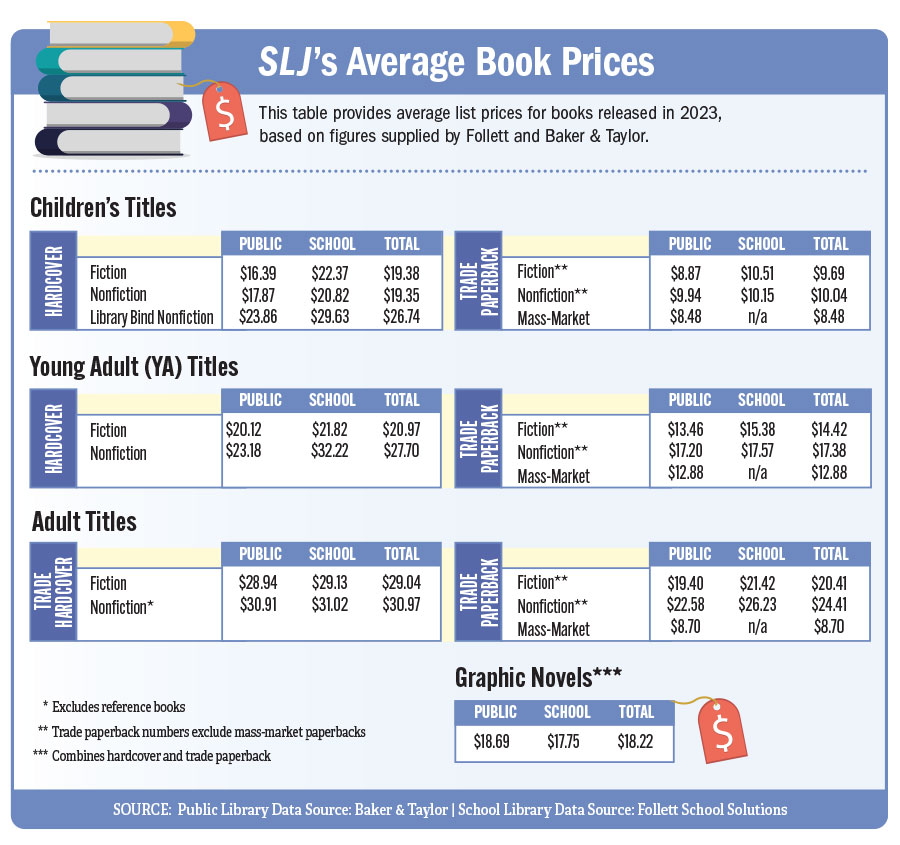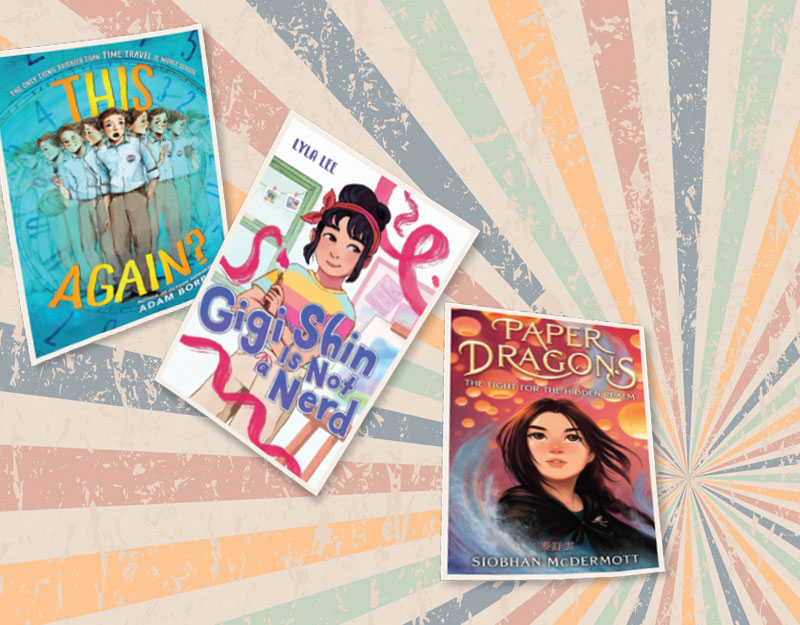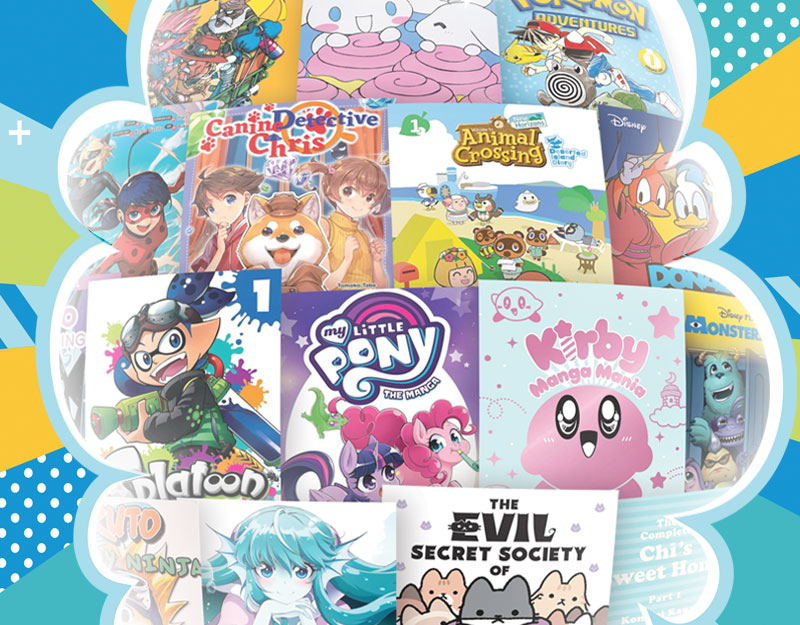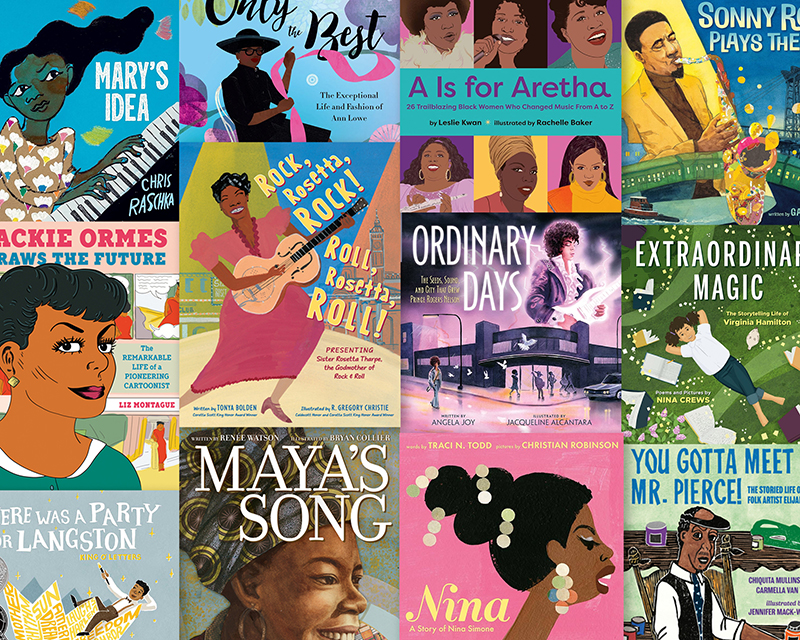Review of the Day: Inside Out and Back Again by Thanhha Lai
 Inside Out and Back Again
Inside Out and Back Again
By Thanhha Lai
Harper Collins
$15.99
ISBN: 978-0-06-196278-3
Ages 9-12
On shelves now
Thinking about the most memorable of children’s novels, one trait in all of them has to ring true in order for them to click with their readers. The books must contain some kind of “meaning”. Even the frothiest Charlie and the Chocolate Factory-type offering isn’t going to remain long in the public’s brain if there isn’t at least a little “meaning” slipped in there. Now when I use the term “meaning” I’m being purposefully vague because it’s not the kind of thing you can easily define. What is meaningful to one person might strike another as trite or overdone. I personally believe that adult novels contain this saccharine faux-meaning a lot more often than their juvenile contemporaries, and why not? Adult books can get away with it while children’s books are read by the harshest of all possible critics: children. As a librarian and a reviewer, I’m pretty tough too. I get mighty suspicious of prose that gets a little too lyrical or characters that spout the book’s thinly disguised premise on every other page. All this is leading up to the fact that when I turned my jaded suspicion-filled toxic eyeballs on Thanhha Lai’s Inside Out and Back Again I found nothing to displease me. Lai’s debut novel speaks with a natural voice that’s able to make salient points and emotional scenes without descending into overly sentimental goo. This author makes a point to draw from her own life. The result is a novel that works in every conceivable way.
“No one would believe me but at times I would choose wartime in Saigon over peacetime in Alabama.” Ha has known both in her life, actually. Born in Vietnam during the war, Ha lives with her mother and three older brothers. Her father disappeared years ago on a navy mission when Ha was just one. Today the family doesn’t even know if he’s alive, but when the chance comes to flee Saigon and make a new life in America, Ha’s mother doesn’t hesitate. Once they’re settled in Alabama, Ha has a whole new set of problems ahead of her. She’s homesick, mad that she’s no longer the smartest girl in class, and tormented after school by some of the boys. Yet the solution, it seems, is not to become someone different but to take what she is already and find a way to make her new life work.
ADVERTISEMENT
ADVERTISEMENT
In a way Inside Out and Back Again kind of marks the second coming of the verse novel. A couple years ago this style of writing for children was hugely popular, helped in no small part by Newbery Award winning books like Karen Hesse’s Out of the Dust. For some it represented the perfect way to get to the heart of a story without unnecessary clutter. Unfortunately, others regarded it as a quick and easy way to write a novel with a word count only slightly higher than your average picture book. The market was saturated and finally verse novels began to peter out. It finally got to the point where I became convinced that the only way a verse novel would work would be if there was some reason for it to even BE in verse. If the author couldn’t justify the format then why did they even choose that style of writing? I haven’t reviewed a verse novel since 2009’s Tropical Secrets: Holocaust Refugees in Cuba by Margarita Engle and like Engle’s book, Thanhha Lai’s novel is written in verse for a concrete, very good reason. In both cases you have stories where children were entering strange new lands where they did not necessarily know the language. To make this book a verse novel, the child reader gets to be inside Ha’s head while at the same time encountering sentences that are broken up in ways different from your average middle grade novel. The result is simultaneously intimate and isolating. It’s perfect.
There are a fair number of children’s books about immigrants coming to America, most of them historical in some way. Ha’s story feels a bit more contemporary since it’s set in the late 20th century. Other immigrant stories for kids always cover the same territory (hostile neighbors, the other kids at school, strange foods, etc.). What I like about Lai’s book is that Ha does something I’ve rarely seen immigrant characters do in books for kids. She gets mad. I mean really rip-roaring, snorting, furious. Here she is, a bright kid, and now she has to feel like she’s stupid all that time at school simply because English isn’t her first language. It’s infuriating! And it was this spark of anger that cinched Ha’s character for me. You can have a sympathetic protagonist set upon by the world all you want, but when that character exhibits an emotion other than mere passive acceptance or sorrow, that’s when you find something about them to hold on to. Ha’s anger lets child readers really understand her. It’s necessary to who she is, drilled home by the section called “Wishes”. In that two page spread, Ha discusses all the things she wishes for, including the return of her father. Then, tellingly, “Most I wish I were still smart.”
Maybe what I really liked about the book was that it wasn’t a one trick pony. Sure, much of it is about moving to America and what that’s like. But it’s also a novel about family. Ha’s brothers are hugely annoying to her when the family is living in Vietnam. They’re all older, after all, and they get a bit more attention and freedom. When the family uproots and leaves everything they’ve known behind, Ha begins to connect to them in new ways. She becomes a comfort and helpmate to her brother Khoi when he suffers a kind of nervous breakdown over the death of his baby chick. She learns self-defense from Vu, her Bruce Lee obsessed brother. And of course it’s her brother Quang who really saves the day for her in the end (I won’t give away how). The change is slow in coming, which keeps it from feeling manipulative or false. It’s just a natural coming together of family members in a hostile world. Good stuff.
As for the writing itself, I’m a bit tired of the term “lyrical”. That’s just personal, though, and I’m sure that if you troll the professional reviews for descriptions of the book that word will surface again and again in relation to this book. With good reason, of course. Lai knows from which she speaks. At the same time, though, she’s making choices in the narrative that I found very interesting. For example, at first you think that you’re reading a kind of pseudo-diary of Ha’s life since her first two entries comes with dates (February 11th and 12th, respectively). Yet when you hit the third piece, it describes the ways in which Ha’s brothers tease her ending, not with a specific date, but with the phrase, “Every day”. In this way Lai is able to separate out the things that happen only once on a specific day and those things that occur frequently. It’s a subtle technique, but it makes the author’s point. Lai also makes small notes about the world that give a person pause. Since this is the story of a girl moving to Alabama in the early 70s, it will probably prompt a lot of discussion in bookgroups when she says of the cafeteria, “On one side of the bright, noisy room, light skin. Other side, dark skin. Both laughing, chewing, as if it never occurred to them someone medium would show up.”
Lai is also able to teach kids about Vietnamese society without coming off all school marmish. I knew about the holiday of Tet in a vague sense (mostly from Ten Mice for Tet), but what I didn’t know was that not only is Tet a Vietnamese New Year’s, it’s also the day everyone celebrates their own birthdays.
All told, Inside Out and Back Again has the brevity of a verse novel packed with a punch many times its size. It’s one of the lovelier books I’ve read in a long time, and can make you think about and question the entire immigrant novel genre, so long a permanent part of the American children’s literary canon. Lai drew upon much of her own life to write this book. Now I’d like to see what she’s capable of when she looks at other subjects as well. Great new author. Great new book.
On shelves now.
Source: Galley sent from publisher for review.
Notes on the Title: Not since When You Reach Me have I had such difficulty remembering the name of a book that I liked. My continual inclination is to call this book There and Back Again, which is amusing. The character of Ha in this book is many things. Bilbo Baggins she is not.
Professional Reviews:
- Four review journals gave the book a starred review, including Kirkus and Publishers Weekly.
Other Reviews:
- Browse inside the book a bit if you’re curious.
Filed under: Best Books of 2011, Reviews
About Betsy Bird
Betsy Bird is currently the Collection Development Manager of the Evanston Public Library system and a former Materials Specialist for New York Public Library. She has served on Newbery, written for Horn Book, and has done other lovely little things that she'd love to tell you about but that she's sure you'd find more interesting to hear of in person. Her opinions are her own and do not reflect those of EPL, SLJ, or any of the other acronyms you might be able to name. Follow her on Twitter: @fuseeight.
ADVERTISEMENT
ADVERTISEMENT
SLJ Blog Network
Happy Poem in Your Pocket Day!
More Geronimo Stilton Graphic Novels Coming from Papercutz | News
Parsing Religion in Public Schools
Environmental Mystery for Middle Grade Readers, a guest post by Rae Chalmers
ADVERTISEMENT








One of my fourth graders just read and reviewed it on her blog: http://blogs.dalton.org/c19hb/blog/review/inside-out-and-back-again-review/
Thanks for the great review. You make me want to run home and dive into this book straight away.
I keep reading the title as “Inside Out; OR, There and Back Again,” so you’re not completely alone. I’m not sure why I keep processing a five-word title as being THAT LONG, but… on a completely different first impression, the cover is very pretty.
“As for the writing itself, I’m a bit tired of the term “lyrical”. That’s just personal, though, and I’m sure that if you troll the professional reviews for descriptions of the book that word will surface again and again in relation to this book.”
I hear you on lyrical. On the other hand, I just read a review of a book that praised it as “winning,” and I laughed. Thanks a lot, Charlie Sheen.
Just catching up with some of your posts and had to say how I so totally agree with your take on novels in verse. But this one looks like a book I’d love to read. Thanks for the review.
What a gorgeous review! Must find a copy of this book.